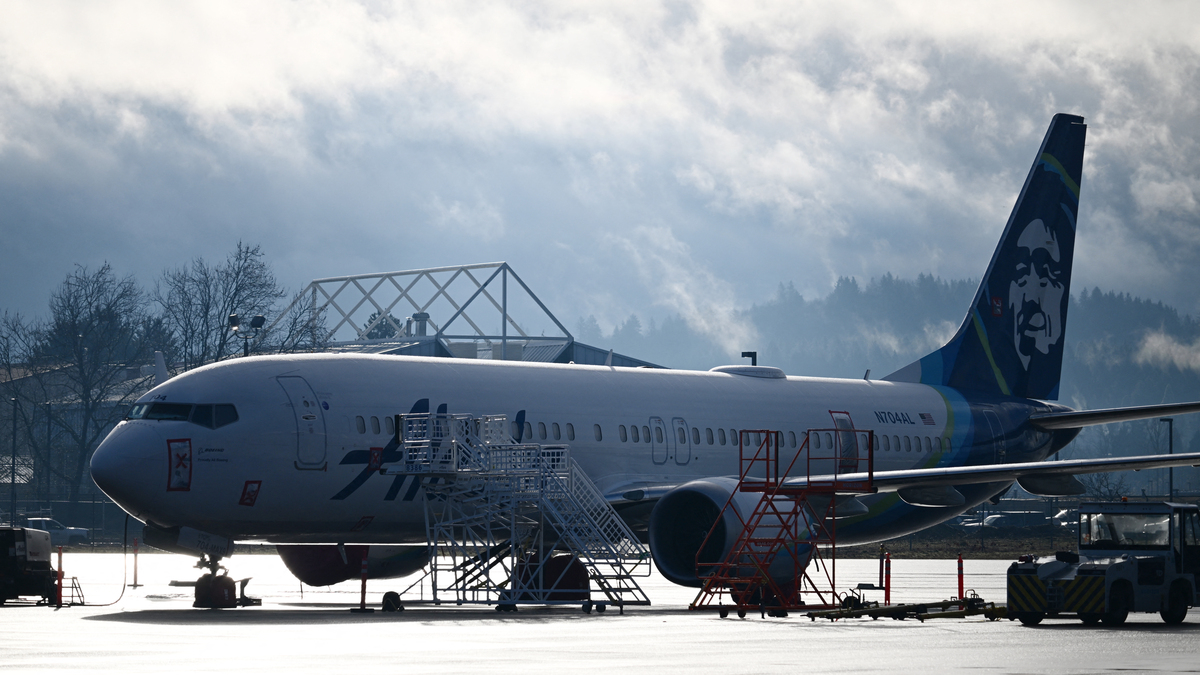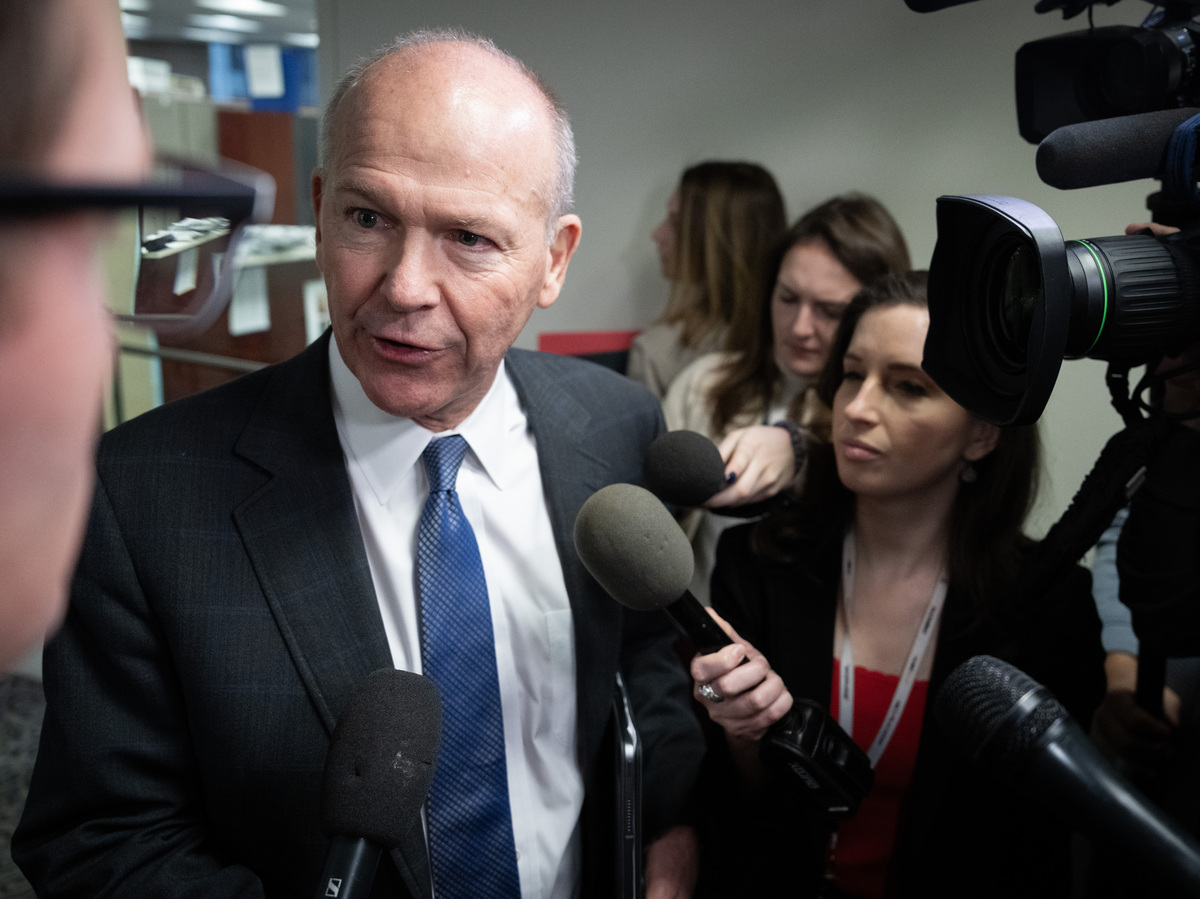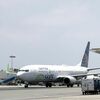
Alaska Airlines N704AL (737 Max 9) made an emergency landing at Portland International Airport on January 5th. Parked in a maintenance hangar in Portland, Oregon, on January 23, 2024. One of the two door plugs on the emergency exit door was blown off. Shortly after the plane took off from Portland.
Patrick T. Fallon/AFP via Getty Images
hide caption
toggle caption
Patrick T. Fallon/AFP via Getty Images

Alaska Airlines N704AL (737 Max 9) made an emergency landing at Portland International Airport on January 5th. Parked in a maintenance hangar in Portland, Oregon, on January 23, 2024. One of the two door plugs on the emergency exit door was blown off. Shortly after the plane took off from Portland.
Patrick T. Fallon/AFP via Getty Images
WASHINGTON — Concerns are growing about Boeing's quality control. It comes as new revelations from an alleged whistleblower suggest a mistake at the company's factory led to the fuselage panel of an Alaska Airlines jet being blown into the air earlier this month.
A panel known as a door plug was blown off at 16,000 feet, but no one was seriously injured. But the dramatic incident raises new questions about Boeing's manufacturing processes and whether the company is prioritizing speed and profit over safety.
Now, a person claiming to be a Boeing employee claims to have details about how the Boeing 737 Max 9's door plug was improperly installed. These new details were first reported in the Seattle Times and made public in a post on an aviation website last week.

“The reasons why the doors were blown off are laid out in black and white in Boeing's own records,” a whistleblower who appears to have access to the company's manufacturing records wrote. “It's also very stupid and speaks volumes about the culture of quality in that particular part of the business.”
According to the whistleblower's account, the four bolts that were supposed to hold the door plug in place “were not installed when Boeing delivered the aircraft, and our own records reflect this.” “I'm there.”
National Transportation Safety Board investigators have already indicated that the bolt may not have been installed. The NTSB is still investigating the incident. If the whistleblower's account is accurate, investigators may be able to confirm it by examining Boeing's records.
Boeing declined to comment on the whistleblower allegations, citing the ongoing investigation.

Boeing CEO Dave Calhoun speaks briefly with reporters as he arrives at U.S. Sen. Mark Warner's office at the Capitol on January 24, 2024 in Washington, DC. Calhoun will meet with senators this week after Boeing was forced to ground its 737 Max 9 jets following an accident earlier this month.
Drew Angerer/Getty Images
hide caption
toggle caption
Drew Angerer/Getty Images

Boeing CEO Dave Calhoun speaks briefly with reporters as he arrives at U.S. Sen. Mark Warner's office at the Capitol on January 24, 2024 in Washington, DC. Calhoun will meet with senators this week after Boeing was forced to ground its 737 Max 9 jets following an accident earlier this month.
Drew Angerer/Getty Images
The allegations came as Boeing CEO Dave Calhoun visited the Capitol on Wednesday to reassure lawmakers and the public.
“We believe in our airplane,” Calhoun told reporters. “We're confident in the safety of our planes, and that's what it's all about. We understand gravity very well.”
NPR has not confirmed the identity of the whistleblower.
But to Ed Pearson, a former senior manager at the Boeing 737 factory in Renton, Wash., his explanation of the manufacturing process problem that caused the door plug explosions seems believable.
“That seemed absolutely accurate to me,” said Pearson, who now serves on the board of the nonprofit Aviation Safety Foundation. “And that doesn't surprise me, because this is the kind of thing we've seen and this is what I've seen in the past.”
“This is a symptom of rushing production,” Pearson says. “People are put under this kind of pressure and are forced to take shortcuts, and that's what creates these mistakes.”

The Alaska Airlines crash was another major setback for Boeing, which had been trying to rebuild public trust after two Boeing 737 Max 8 planes crashed in 2018 and 2019, killing 346 people. .
After the recent Alaska Airlines incident, the Federal Aviation Administration grounded 171 Boeing 737 Max 9 aircraft with similar door panel configurations.
Alaska Airlines and United Airlines have canceled thousands of flights as they await final inspection orders from regulators. The CEOs of both airlines criticized Boeing in separate interviews Tuesday.
“We're not just frustrated and disappointed,” Alaska Airlines CEO Ben Minicucci said. told NBC News. “I'm angry.”
“It's clear that the doors on the planes we received from Boeing are defective,” he said.
That's exactly what the Boeing whistleblower claims. Their post details how the door plug was removed for repair and then replaced at a Boeing factory. The four bolts holding the door plug in place should have been reinstalled, the whistleblower wrote.


But that wasn't the case, according to the whistleblower, due to communication problems between employees working for Boeing and Spirit Aerosystems, the company that made the plane's fuselage and door panels.
The whistleblower described the safety inspection process at the Boeing 737 factory in Renton as “rambling, chaotic, and a disaster waiting to happen.”
The Boeing 737 factory team in Renton will hold what the company calls a “quality stand down” on Thursday, halting production for a day so employees can participate in a special training session.
But it's clear the company must do more than that to restore its reputation.
Sen. Maria Cantwell (D-Wash.), chair of the Senate Commerce, Science, and Transportation Committee, spoke with Mr. Calhoun on Wednesday.
“I have made it clear that our commitment to quality engineering and safety must always be our top priority,” Cantwell said in a statement.
Cantwell said a public hearing will be held to investigate the root cause of the door plug explosion.
“American aviation in general and Boeing line employees deserve a culture of Boeing leadership that puts safety before profit,” she said.

